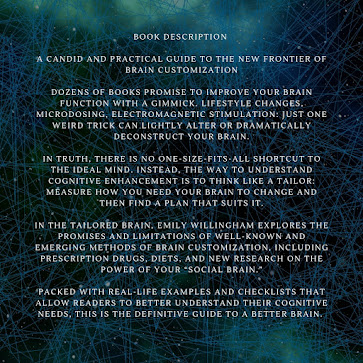⭐⭐⭐⭐☆
"How understanding the way your brain works can help you control anger and aggression."
These words stuck in my mind. I found this line as a book subtitle of Ronald Potter-Efron's Healing the Angry Brain that gave me an idea that if I understood how my brain works, then I could handle negative emotions.
I'm only human. I was very angry at one point in my life. Let's just say that there were things in life that I couldn't accept. In hopes of understanding myself and changing my mindset, I searched for an explanation for why humans get angry. My curiosity led me to find the book mentioned earlier. Then, I got more curious. I bought two more books about brain science: Brain Rules and The Brain that Changes Itself. Basically, I just wanted to understand my mind so I could change my life. Reading these books didn't make me an expert who knows the right ways in dealing with emotions, however, their impact on my life couldn't be denied. Gradually, I got to understand myself, and this understanding steered me to exercise self-compassion and acceptance that lessened my reactivity to any triggering situations. The journey to self-healing is not linear, though; there are good days and bad days, but I am getting better at handling my emotions than before.
When I saw The Tailored Brain Book on NetGalley, I downloaded it right away. The difference between this book and the other books I read is the emphasis on social connection as a factor in improving one's brain health. Improving our brain involves being around other humans.
There are so many things to learn, the technical side and the practical side. One of the things that I found helpful in understanding the three networks of our brain. The first one is the default mode network or DMN that works when we are not present when we are daydreaming, or going down memory lane. The second network is the Central Executive Network or CEN that holds the information in front of us at the present time and deals with it to solve the problem at hand. The third is the salience network that works like a switch or a lever; when we are daydreaming or remembering the past and imagining the future, the salience network turns on the DMN, when our attention is on what we see, smell, hear, feel or taste in the now, the salience network turns on the CEN.
The DMN and CEN are said to be anticorrelated; when the DMN is operating, the CEN is muted, and vice-versa. This is why when we go to sleep, we think of hundreds of things because we don't use our CEN anymore. Knowing this, I practice being more compassionate with myself because I know when my mind thinks of a thousand thoughts, it's my DMN working. I let the thoughts swirl in my head, trying not to react, just letting them be, or I recall other things that don't trigger me such as the events of the novel I have read until I fall asleep.
The things I shared above are only the basics. The author explains further how these systems work when we use our attention and memory, when we do creative and non-creative things, when we are stressed and anxious, and when we collaborate with other people.
The author also explores the different interventions that addressed attention, memory, and mental health conditions. She is not imposing her own conclusions on the readers, but rather she encourages them to do more researches and to be wary in reading neuroscience studies. She also recommends seeking professional help for mental health conditions.
Some Golden Nuggets
- The Intelligent Quotient (IQ) is not the sole measurement of a person's capability, even though it predicts the person’s success in adulthood.
- Reading fiction books can increase social cognition. Hurray for bookworms!
- Physical activity promotes better "working memory, cognitive flexibility, and inhibitory control." I finally decided to go for a walk every day for 30 minutes.
The Tailored Brain is the best book I've read on brain health so far as it offers practical tips and meaningful insights. Even though it's challenging for me to read the technical part, I still enjoyed reading it. Actually, I'm going to read it again to fully understand the important and helpful sections.
The author said that reading this book is "encountering the things she had in her brain." She hopes that the readers' interaction with her through her book will be useful in the end. Yes, Emily Willingham, it's useful and it changed my life. It changed the way I look at interacting with others even though I'm an introvert, it changed the way I look at exercising, and it changed the way I look at my own capability as a human being.
Thank you Emily Willingham, Perseus Books, Basic Books, Basic Books, and NetGalley for the ARC in exchange for an honest review.
Discussion Questions
What do you think about the title of the book?
What are the main points the author presented in this book?
What part or parts of the book left an impression on you? In what way?
Was the language used by the author appropriate? Why or why not?
Were the terms and concepts easy to understand?
What practical lessons did you learn from this book?
Would you apply these lessons in your life? Why or why not?
Did this book live up to your expectations?
What questions would you ask the author?
To whom would you recommend this book?
Further Information
Title: The Tailored Brain: From Ketamine, to Keto, to Companionship, A User's Guide to Feeling Better and Thinking Smarter
Author: Emily Willingham
Genre: Self-help
Publisher : Basic Books (December 14, 2021)
Publication Date: December 14, 2021
Pages: 304
ASIN: B091T5F8H6
Quotes






